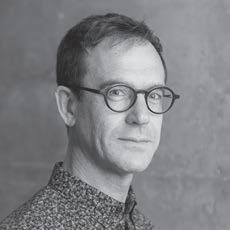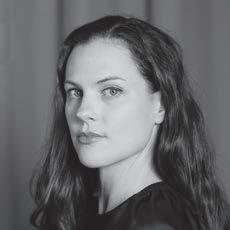Kathryn Schulmeister
Wednesday, October 1, 2025
7:30 pm
Recital Hall
Composition No. 152 (1991)
Ryan Krause (b. 1984)
Chillón o Tragicomedia (Crybaby or Tragicomedy) (2019)
American Vein (2019) The Redwood Forest On Route 66
Woodstock: Summer of 1952 The Melting Pot Barn Raising, Bourbon and Bluegrass (BB&B)
Valerie Coleman (b. 1970)
PROGRAM NOTES
Braxton: Composition No. 152
Anthony Braxton is a wildly prolific and influential figure in American experimental music—a multi-instrumentalist most renowned for his alto saxophone improvisations, a composer of notoriously dense, genre-defying works, and a beloved pedagogue who inspired generations of students at Mills College and Wesleyan University. A key early member of the Association for the Advancement of Creative Musicians (founded in Chicago in 1965), he has received more recent institutional acclaim as a MacArthur Fellow and NEA Jazz Master.
Many of his hundreds of compositions can be viewed as modular schematics— sometimes notated on the way to the gig, rehearsed only at soundcheck if at all, deployed on the fly within collage structures and perhaps later repurposed for entirely different ensembles and contexts. They are intended less as airtight constructions that might withstand the scrutiny of Eurocentric music theorists than as catalysts for playing and goads to improvisation. Only in recent years, thanks to the dedication of his former students who founded the Tri-Centric Foundation, have they begun to move beyond the realm of photocopies shared among acolytes and into commercial circulation as published scores. Composition No. 152 is one of those scores, first recorded in concert by Braxton on flute and Peter Niklas Wilson on bass (8 Duets Hamburg 1991, Music and Arts CD-4710).
—Kyle Bruckmann
Krause: sense títol
sense títol is an untitled work for double bass and wind instrument. The use of the Catalan language to indicate the untitled nature of the piece is an example of composer Ryan Krause’s uncanny mastery of wordplay. Commissioned for a concert of contemporary chamber music in Catalonia, Krause created a work that explores measured and unmeasured austerity in musical performance. The double bassist creates the foundation of a sonic landscape by performing a procession of physically fragile dyads (two pitches played simultaneously) in the uppermost register of instrument, exclusively in harmonics (tones created by lightly touching the strings). The wind instrument part is completely improvised, but informed and limited by the pillars of unstable sound created by the double bass. The pitch intervals are small in range and delicate to execute on the double bass, which gives the wind player a microscopic space within to freely play. This set of performance guidelines is in part a commentary on the economic ‘austerity measures’ enforced by the Spanish government in 2012 in response to the international financial crisis.
—Kathryn Schulmeister
Yi: Mountain Song
Phrasings and hints of Chinese folksongs, and the dramatic beauty of nature, are often the deep inspiration for Chen Yi’s musical worlds, along with the subtle relationship between folk arts and progressive arts. All these inspirations combine elegantly in Mountain Song, composed for the bicentennial of London’s Royal Academy of Music.
PROGRAM NOTES
Yi: Elegy
Elegy was commissioned by the Saint Paul Chamber Orchestra for its principal oboist Cassie Pilgrim. Since Cassie and I share the same cultural heritage from Southern China, Elegy has a strong influence from Cantonese folk music material, including the folk tunes in Yifan Mode, which sound sad and sentimental. This solo piece expresses a deep nostalgia for our loved ones, as well as our painful mourning for thousands of people who lost their lives around the world during the Covid-19 pandemic.
—Chen Yi
Lanzilotti: ‘ālohilohi ‘ālohilohi means “radiant” in ‘Ōlelo Hawai‘i. This piece explores radiance through various timbres: the radiance of shimmering overtones, the radiance of resonance/contact.
—Leilehua Lanzilotti
Ramos: Chillón o Tragicomedia
Crybaby (or Tragicomedy) was written as a result of my interest in tropes and stereotypes—the oboe is often cast as a doleful and sentimental character in music. In this unsettling and humorous caricature, the musician wails, gasps, and whimpers their way through a volatile emotional landscape, not unlike someone throwing a tantrum, or the trope of the "sad clown" (do we laugh or cry?). The music is also streaked with allusions to the last movement of Poulenc's Oboe Sonata, with the climax mangling Poulenc's beautiful melody in a fit of irrational sadness and anger. The music eventually retreats into distance and numbness.
—Marco-Adrián
Ramos
Conklin: Impossible Lullaby
There’s a lullaby I’ve always loved called “Wooly Wooly Gong.” My friend Merrill wrote it years before she became a parent, yet I’m convinced I can hear her predicting what it will feel like to care for a young child. The music is tender and loving, but also foggy and addled—and at times a little scary. That these feelings can coexist seems impossible.
I was talking to Kyle Bruckmann last summer about impossibly soft sounds on the oboe, and through a series of coachings I assembled a simple lullaby melody from pitches obtained through alternate fingerings. It was a joy to work with Kyle and Kathryn Schulmeister to create this cloudy oboe/bass dreamscape, which, for me at least, prefigures a gloriously full night’s sleep.
—Andrew Conklin
Coleman: American Vein
Valerie Coleman’s American Vein was commissioned by OboeBass!, an unusual professional chamber ensemble based in Minnesota with precisely the instrumentation you’d suspect. The work’s five wonderfully varied movements all feature accompanying texts for an optional narrator, some of which we will recite in performance and all of which are printed below.
In preparing to play it for you, we’ve been musing about how any piece of music can (and should) be viewed through a musicological lens from the instant it’s composed. The distance from 2019 to today is a mere blip within the frame of the “music history” we conventionally discuss around here—but we suspect you’d agree that it’s a yawning chasm in terms of our lived experience of the recent past.
PROGRAM NOTES
It’s sobering to reflect on just how fierce Coleman’s optimism was then in citing Emma Lazarus’s “The New Colossus” (a sonnet written in 1883 to raise money for the construction of a pedestal for the Statue of Liberty) for Movement 4, “The Melting Pot”—and on how that optimism lands now, in this desperately fraught sociopolitical moment filled with rancor, scapegoating and cruelty. While this is a lot to ask of a measly chamber music performance, we’re here to dedicate it to all of us, to each other—asserting that the lofty ideals that have always been greater than what our country has actually realized remain forever worth striving towards.
The Redwood Forest
Do you know about the World Tree from which all others are born? I have seen its mighty children, ancestor groves whose thrones of noble feet hold down the roots of earth worn. A tribe who was tall since memory was new, stood stilted oaken pillars that climb and crown the heavens kiss with manes of glory. Even the arrogant fools of men must bow to the Sequoias as royalty whose records bear wisdom we cannot hear though they speak with a voiceless might... in vigilance, as sentinels, of Earth’s humanity.
—Valerie Coleman
On Route 66
Soda shop, lollipop, biggest ball of yarn, Do we dare stop, hon? HONK!
The tour map flirts dangerously, with the broad open window, winking her crisp edges with a snap to the vistas of gas stations, eagles and crows. She thinks she is perfect hostess for showing us the places to be, but becomes wildly offended by the shot gun navigator’s snore. Such rude manners! says she. With a hmph! she bows a vain curtsy outstretching her glove to her suave dance partner, Air. A dramatic exit indeed.
None the wiser, I sink into un sueno, an idyll of fluttering postcards
—Kyle Bruckmann
and dusky tum-tumbleweeds that fade like memories…
Woodstock: Summer of 1952
PROGRAM NOTES
—Valerie Coleman
There is no such thing as an empty space or an empty time. There is always something to see, something to hear. In fact, try as we may to make a silence, we cannot.
—John Cage, Silence: Lectures and Writings
The Melting Pot
Not like the brazen giant of Greek fame, With conquering limbs astride from land to land; Here at our sea-washed, sunset gates shall stand A mighty woman with a torch, whose flame Is the imprisoned lightning, and her name Mother of Exiles. From her beacon-hand Glow world-wide welcome; her mild eyes command The air-bridged harbor that twin cities frame. “Keep, ancient lands, your storied pomp!” cries she With silent lips. “Give me your tired, your poor, Your huddles masses yearning to breathe free, The wretched refuse of your teeming shore. Send these, the homeless, tempest-tossed to me, I lift my lamp beside the golden door!”
—Emma
Lazarus, The New Colossus
Barn Raising, Bourbon and Bluegrass (BB&B)
You’d think it happened in all grays and brown the way Grandpa remembers it.
Suspenders thumb hooked and steely jaw glinting at that old barn, and when his eyes took a long breath, his heart spoke of raising it the right way: Decency and respect for the frame, to be shored up with nails and pegs of grit and sweat then hoisted up with ropes and levers of integrity. Some of your neighbors will stand and balance on that frame when it goes up, he said, to keep watch and secure it strong enough to stand in all seasons. Once that barn was up, we sat down for a meal… 10 hams, 75 cakes, 175 pies and 500 tarts were all gone in an hour. Then came the bourbon and bluegrass.
—Valerie Coleman
Oboist and electronic musician Kyle Bruckmann is assistant professor of practice and program director of Varied Ensembles at University of the Pacific. He tramples genre boundaries in widely ranging work as a composer/performer, educator and New Music specialist. His creative output—extending from conservatory-trained foundations into gray areas encompassing free jazz, post-punk rock, and the noise underground—can be heard on more than 100 recordings. Three decades of chameleonic gigging have found him performing in settings including the Monterey Jazz Festival, the Venice Biennale, CBGB, Berghain, a 12-foot diameter bomb shelter, and dangling 30 feet in the air by a harness from a crane.

Since moving to the Bay Area in 2003, Bruckmann has performed as a substitute with the San Francisco Symphony and most of the area’s regional orchestras while remaining active within an international community of experimental musicians and sound artists. Current affiliations include Splinter Reeds, San Francisco Contemporary Music Players, Quinteto Latino, sfSound and the Stockton Symphony.
Hawai‘i-born bassist Kathryn Schulmeister serves at University of the Pacific’s Conservatory of Music as assistant professor of practice in double bass. Praised for her “expressive and captivating performance” (Grammy.com), she enjoys a creative music practice as a versatile performer, educator and researcher. Recent honors include a 2020 Grammy Award nomination as a collaborating artist featured on Susan Narucki’s The Edge of Silence, a contemporary classical album of chamber works by György Kurtág on AVIE Records (2019).

Schulmeister has appeared as a soloist with leading international contemporary ensembles including Klangforum Wien, the ELISION Ensemble and Ensemble Vertixe Sonora. She has given solo performances at venues and festivals around the world including the Melbourne Recital Centre, Huddersfield Contemporary Music Festival, ECLAT Festival Neue Musik Stuttgart, San Diego Museum of Making Music, soundSCAPE Festival, Vértice Festival and the Clive Davis Theater at the Grammy Museum. She is a member of the ELISION Ensemble, Fonema Consort, and Echoi Ensemble. She has performed as a guest artist with various adventurous ensembles including Delirium Musicum, Ensemble MusikFabrik, SWR Experimentalstudio Freiburg, Wild Up! and Ensemble Dal Niente.
Every gift to the Conservatory from an alum, parent, or friend makes an impact on our students. Our students rely on your generosity to enable them to experience a superior education.
Please contact the Assistant Dean for Development at 209.932.2978 to make a gift today. You may also send a check payable to University of the Pacific: Conservatory of Music, University of the Pacific Attn: Assistant Dean for Development 3601 Pacific Avenue Stockton, CA 95211




To view our upcoming events, scan the QR code or visit Pacific.edu/MusicEvents
